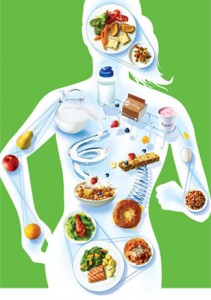It’s no secret.
Especially for my readers and followers.
Exercise researchers and sports nutritionists have known for years that carbohydrates and fats are the most important fuel for endurance.
Step into the new millennium and science has discovered that blood glucose may be the most important fuel source available to soccer players.
So what is blood glucose?
Blood glucose is a carbohydrate that is a readily available source of energy. Blood glucose also has the ability to decrease fatigue even when glycogen is available in the body.
Lets quickly recap what we already know.
Soccer Nutrition For Soccer Players- The Hypoglycemia Effect
Soccer Nutrition Tips- The Sugar Effect
Soccer Nutrition- The Pre Match Meal
Soccer Nutrition- Get Ready To Crush Your Opposition
The fuel that is required to perform is stored in the body in 3 ways.
Can you remember these?
The forms are
Muscle Glycogen
Body Proteins
Fat
The greatest supply of fuel comes from fat even in the leanest of soccer players. Muscle glycogen is the fuel source that is limited. The storage limits that differ from player to player are 1600-1800 calories of carbohydrate that can be stored as glycogen.
So how do you reach these maximum levels of glycogen?
Increased glycogen levels can be achieved in 2 ways.
The first step is to regularly eat foods that are rich in carbohydrates. The second step is to eat carbohydrate-rich foods after a match.
Studies show that glycogen is made in the body and stored in the muscles at the greatest rate within the first 2 hours after training or a match.
 The secret to performance is that players need to eat carbohydrates after training or a match to replace used glycogen.
The secret to performance is that players need to eat carbohydrates after training or a match to replace used glycogen.
That’s it, pretty simple don’t you think?
The best results for recovery have been achieved by eating 30 to 60 grams of carbohydrates each hour (up to 2 hours) after a session.
Don’t take these figures as gospel. Each player is different and will react differently to various preparation and diets. You should experiment with a small amount of carbohydrates before and during a training session. This will allow you to experience what feels comfortable before jumping into an experiment on match day.
So today’s lesson is this,
Use food to your advantage. Eat smart and use food to increase your performance. Carbohydrates could transform your team to a winning one.
Soccer Training Diet
This diet should only be used as a guide.
Monday-Wednesday
Activity- Rest
Diet-
60% Carbohydrates=1500 calories (375 grams)
15% Protein=375 calories (95 grams)
25% Fat=625 calories (70 grams)
Tuesday-Thursday
Activity- Training
Diet-
Breakfast= high carbohydrates such as bread, bagels, cereal, pancakes, fruit juice, milk and yogurt.
Drink carbohydrates in the form of Gatorade every 1-2 hour.
Before training (3-4 hours) eat a high carb snack of 500-600 calories
1 hour before training eat or drink 30 grams of carbohydrates.
1 hour into training try and drink 30 grams of carbohydrates
Soon after training eat or drink carbohydrates to encourage glycogen production.
Friday
Day before Match/ Plenty of Rest
Follow Mon-Wed diet. Carb up at the evening meal with any of these-pasta, potatoes, rice, bread, salad, fruits, vegetables and lean meats.
Saturday
Match Day
Eat high carb, low fiber meal 3-4 hours before the game (500-600 calories)
Each hour after meal eat or drink 30-60 grams of carbohydrates
At half time, drink a carb drink or eat some fruit
Sip water or drink throughout the game
Eat carb foods soon after the match for maximum glycogen building.
“May the winds of destiny blow you to the stars.”



can this program work for a diabetic,feedback would be appreciated.
thanx alex
Great post and I am glad I found your site! Knowledge and resources need to be shared to help get rid of myths and misnomers in the sport!
Looking forward to the next one!
Gday Alex, thanks for the question but unfortunately I’m not a doctor and would never give out medical advice. If this program is something you would like to try, consult with your doctor first.